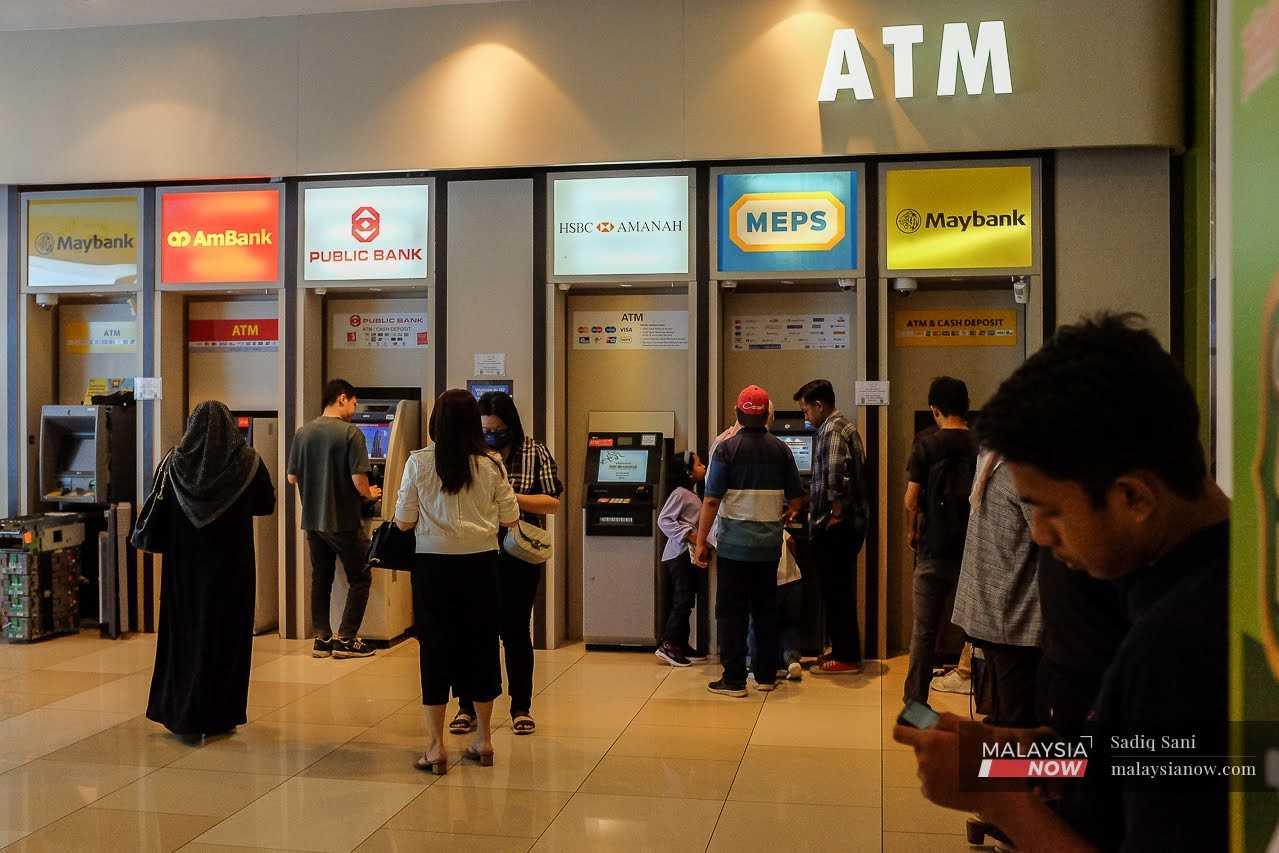PayNet, company at centre of QR fee storm, has wide net over public banking services
The company comprises about a dozen shareholders, dominated by Bank Negara Malaysia and major commercial banks.
Just In
Payments Network Malaysia Sdn Bhd (PayNet), the company at the centre of the storm over a plan to impose fees on retailers using its mobile phone QR payment scanning facility, is also behind a list of major banking service providers, with Bank Negara Malaysia (BNM) and several commercial banks as shareholders.
The company, which was thrust into the limelight after MalaysiaNow reported its plan to start charging fees on businesses receiving payments using its DuitNow QR facility, was formed in 2017 through a merger between two major players in the banking industry, becoming Malaysia's top bank infrastructure provider.
PayNet was the result of the merger between Malaysian Electronic Clearing Corp Sdn Bhd (MyClear), a company wholly owned by BNM, and Malaysian Electronic Payment System (MEPS), the company behind automated teller machines (ATM) nationwide.
The company is now jointly owned by BNM, which has a 35% stake, and at least 11 commercial banks, including CIMB Bank, Maybank, Public Bank, RHB, Hong Leong Bank, and AmBank.
At its establishment, then BNM governor Muhammad Ibrahim said one of the goals of PayNet was to promote the use of debit cards as a low-cost alternative for merchants to encourage cashless transactions in the retail sector.
One of the moves it announced was the waiver of the 50 sen fee for interbank instant online transactions, which was renamed DuitNow.
Today, PayNet controls the daily services used by Malaysians for their banking needs: cheque clearing, interbank online fund transfers, online bill payments such as JomPAY, as well as point-of-sale payments for shoppers through the use of debit and ATM cards.
The company also operates direct debit facilities for the automatic collection of payments from banks, the processing of used currency notes, security certification for chip cards and payment systems, as well as a network of ATMs that includes more than 10,000 machines nationwide.
In April 2020, at the start of the Covid-19 crisis, which saw worldwide lockdowns, including in Malaysia, the instant transaction fee of RM1 imposed for customers using their cards at ATMs across different banks was lifted, a move to prevent crowding at banks in keeping with health SOPs.
The fee was reinstated in February last year as the government announced the endemic stage and a return to pre-pandemic normalcy.
Today, payments via QR code and e-wallet are widespread, thanks to the two-year Covid-19 pandemic, which saw retailers switch to cashless facilities during the lockdown periods.
QR code signs have become a common sight even at food stalls – but the announcement of a looming charge has rattled small businesses, who see it as an extra burden on top of rising prices and costs.
A debate has also raged over the charges, with many Malaysians voicing outrage at the timing of the new fee structure to be imposed next month.
Many point out the long list of bank-related businesses in which PayNet is involved, criticising the fee move as an attempt to make more profit on the back of small businesses relying on the popular payment method.
The online outrage prompted at least two banks – Public Bank and Maybank – to assure customers that they would postpone any imposition of fees indefinitely, while CIMB Bank said the fee waiver would remain until the end of the year.
PayNet has defended itself against the public outrage, citing "confusion" about the move.
It said it chose to waive fees on QR payments to encourage the use of the facility.
"This waiver was further extended due to the outbreak of Covid-19. It is neither a new nor an additional fee. Instead, Oct 1, 2023 is the end of the MDR waiver that was supposed to have been done over nine months ago," it said yesterday, referring to the discount given by banks to businesses to cushion the impact of the fees.
It also hit out at critics of the fee plan, saying discussions should be "premised on an accurate, correct, and fully informed understanding of the facts and how the digital payment industry actually operates".
Subscribe to our newsletter
To be updated with all the latest news and analyses daily.
